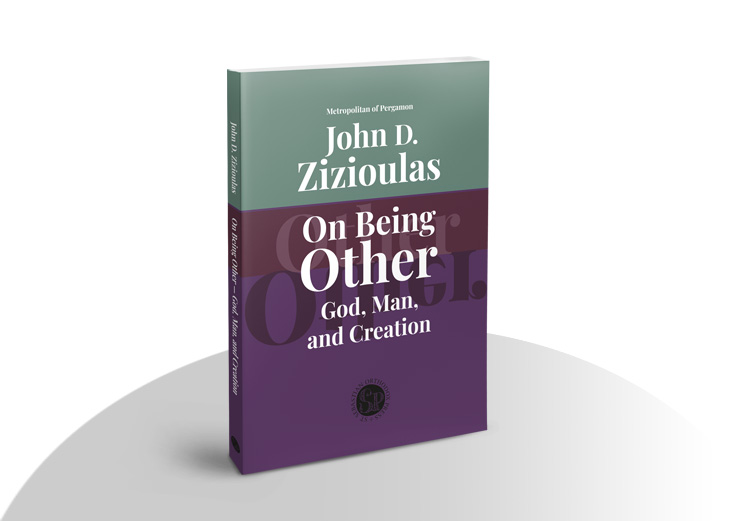Edited by Bishop Maxim Vasiljević
Los Angeles: Sebastian Press, 2024
Love as eros is not about feelings and emotions, or goodness. It is about a new birth, a “call” giving someone a unique identity, totally incomparable to any other identity, a “mode of being” distinguished and identifiable, after the model of the Holy Trinity, not by any natural or moral qualities, but by the sheer relation it has with the being who causes its identity to emerge.
Metropolitan John D. Zizioulas
On Being Other stands as a testament to Metropolitan John Zizioulas’ lifetime of scholarly endeavor, encapsulating his profound insights into Trinitarian theology, cosmology, and ethics and even spanning psychology, biology, and physics. In this seminal work, Zizioulas delves into the concept of the “Other,” challenging Western thought by suggesting their interpretations are not inadequate but somewhat incomplete. He presents a universe where existence is a gift from a radically other, volitional Being, weaving creation and salvation into the fabric of this divine generosity. Throughout the pages of this intellectually stimulating and convincingly argued book, our preconceptions are tested, and our thoughts are redirected toward the profoundly meaningful dimensions of the Christian faith. Metropolitan John guides us through the intellectual and actionable framework outlined in Scripture, among the Greek Fathers, and by the Desert Fathers with their insights on practice and prayer. While engaging with philosophers such as Levinas, Sartre, and Heidegger, Zizioulas remains firmly rooted in Orthodox tradition, exploring human anthropology through creation, the Fall, and Christology. He depicts humans as beings meant for relational networks with God and creation, called to partake in the eternal triune life through deepening communion. This volume emerges as one of the most insightful, contemporary, and accessible explorations of Orthodoxy to date.
In the eucharistic ethos faith is closely linked with the idea of personal causality. Whatever exists or happens is given to us by a person. “Every house is built by someone (= a person), and he who has built everything is God” (Heb 3:4). Faith does not spring from a rational conviction or from a psychological experience, but from the ethos of attributing everything to a personal cause. Whatever we are or have is attributed to an Other—not to Self or to nature. And since everything, including our being, is a gift, we cannot but assume a giver behind everything. This is the eucharistic path to faith. To this way of thinking, atheism appears to be a form of ingratitude, a lack of the eucharistic ethos.
In this book, the concept of otherness is explored from various perspectives, each aligning with core elements of the Christian doctrine. Across these dimensions, the “other” is demonstrated to be ontologically foundational to the being of God, encompassing the identity and actions of Christ and the Spirit. This principle also extends to the essence of creation and humanity, both in their present state and in their anticipated eschatological future.
The gulf of otherness between God and the world is bridged in a personal or hypostatic manner (ὑποστατικῶς). In Chalcedonian terminology, the unity between God and the world takes place while the divine and the human natures unite in a Person “without confusion,” that is, through a communion that preserves otherness.
Metropolitan John D. Zizioulas


